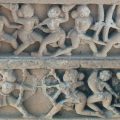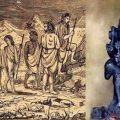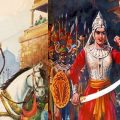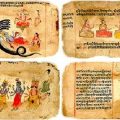Highest Designation to Women Given by Vedas!! Women Empowerment in Ancient India
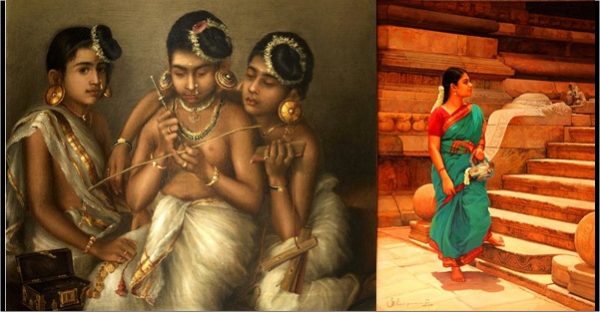
Women in ancient India enjoyed equal status with men. They were educated. They were trained in the art of warfare by choice. The Rigved finds mention about a warrior queen Vishpala, who is trained in the art of warfare. She loses a leg in battle; an iron leg revives her spirit and she resumes her battlefield exploits.
In the Vedas, women are designated as:
Aditi, because she is not dependent (Nirukta 4/21)
Aghnya, for she is not to be hurt (Yajur Veda 8/43)
Bhrati, for she is large hearted (Yajur Veda 11/64)
Chandra, because she is happy (Yajur Veda 8/43)
Devakama, since she is pious. (Atharva Veda 14/1/47)
Devi, since she is divine (Atharva Veda 14/ 1/45, Yajur Veda 4/23)
Dhruva, for she is firm (Yajur Veda 11/64)
Havya, because she is worthy of invocation (Yajur Veda 8/43)
Ida, for she is worshippable (Yajur Veda 8/43)
Jyota, because she is illuminating, bright (Yajur Veda 8/43)
Kamya, because she is lovable (Yajur Veda 8/43)
Kshama, for she is tolerant, indulgent, and patient (Atharva Veda 11/1/29)
Mahi, since she is great (Yajur Veda 8/43)
Mena, because she deserves respect (Nirukta 3/11/2)
Nari, for she is not inimical to anyone (Atharva Veda 14/1/59)
Purandhih, for she is munificent, liberal (Yajur Veda 22/22)
Ranta, because she is lovely (Yajur Veda 8/43)
Rtavari, Rtachit, for she is the preserver, forester of truth (Rig Veda 1/41/18)
Sanjaya, since she is victorious (Rig Veda 10/159/3)
Sarasvati, since she is scholarly (Yajur Veda 10/84)
Simhi, since she is courageous (Yajur Veda 5/11)
Siva, for she is benevolent (Atharva Veda 14/1/64)
Sivatama, since she is the noblest (Rig Veda 10/85/37)
Stri, since she is modest (Rig Veda 8/33/9, Nirukta 3/11/2)
Subhaga, because she is fortunate (Yajur Veda 8/43)
Subdha, for she is knowledgeable (Atharva Veda 14/175)
Sumangali, since she is auspicious (Atharva Veda 14/2/26)
Susheva, for she is pleasant (Atharva Veda 14/1/16)
Suvarcha, since she is splendid (Atharva Veda 14/4/47)
Suyama, since she is self disciplined (Atharva Veda 14/1/18)
Syona, since she is noble (Atharva Veda 14/2/27)
Virini, since she is mother of brave sons (Rig Veda 10/86/9. 10)
Vishruta, since she is learned (Yajur Veda 8/43)
Yashashvati, for she is glorious (Rig Veda 1.79.1)
Yosha, because she is intermingled with man; she is not separate (Nirukta 3/15/1).
The Constitution of India gives equal rights to women like the right to vote, right to equality, etc. In fact, there is a provision in Article 15 (Clause 3) that empowers the state for making special provisions in favor of women and children.
Look at the world around you – that women is empowered is evidenced by their prevailing presence in courts and public office space, corporate houses and Parliament, and what not! Name entrepreneurs and scientists, writers and social activists, actors and directors: they are there everywhere! A housewife, a mother – they are the strongest, raising a whole family, a whole household! Women in ancient India were empowered. They remained empowered since antiquity till date.
Visit Indian History Real Truth Facebook group to view related posts. This article is part of ‘JEWELS OF BHARATAM SERIES [TM]‘ by the author.
Featured image courtesy: Pinterest.
Disclaimer: The views expressed here are solely of the author. My India My Glory does not assume any responsibility for the validity or information shared in this article by the author.

